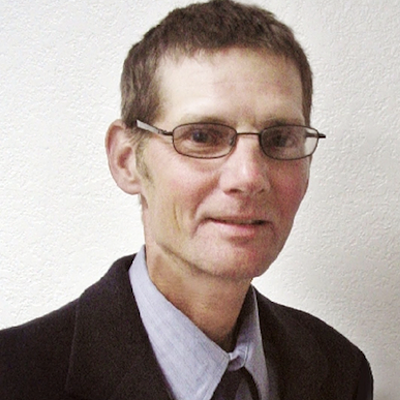One of the reasons given for the council's failure to reappoint you was that you had a "liberal political agenda." How do you respond to that?
One, it's not true. Two, I've never seen any specific items listed as part of the "liberal political agenda," but I would be interested in seeing it. The issues that might be perceived as liberal, such as the livable wage issue or the construction fairness ordinance, were done at the direction of the mayor and council. If you talk to people who've known me a long time, you'll hear I am not now and never have been a liberal.
There were three issues--the El Con redevelopment project, the big box ordinance, and the incorporation of Casas Adobes--for which you were specifically criticized.
No one on the council ever personally approached me about those issues. The only people who did criticize me in the big box case were those council members who supported my reappointment. I have been told that some council members were not all that happy that we prevailed on the big box referendum petition issue [which kept the potential repeal of these regulations from going before the voters]. I guess some people wish we would have lost that case, but its most important aspect was the preservation of the city's rights under its charter to conduct its own affairs. That trumps the other issues involved in the case, in my opinion.
One of the things wrong with this whole process has been that no one ever tells you what you have supposedly done wrong. You just read things in the newspaper. I apparently was accused of being too friendly with some of the opponents of the El Con redevelopment project. I at least talked to them because I believe it's part of the job to talk to anybody who wishes to present a concern to the city attorney's office.
I heard indirectly that people were upset that I talked to some union representatives after the council's big box vote. Five minutes later, however, I was talking to the legal representatives of the big box stores. I talk to virtually everybody, and I think that is what you are supposed to do.
Why do you think, then, that your contract as city attorney wasn't renewed?
Since no one ever told me, it's hard to tell. The big issue in town now is land use. I believe certain folks in the development community saw me and my office as a small obstacle in the path of certain development-related issues.
The El Con case, where we tried to ensure the process was followed, is a specific example. Some people in this community believe that through a development agreement you can avoid certain provisions of the city's land use code, of state zoning law, or of certain public processes. They believe you can get everything done with one vote. We probably bent too far on that issue while I was there, but apparently not far enough. I continue to believe, however, that the land-use code is what you have to start with, and that the process of the Planning Commission, the Board of Adjustment, and a public hearing before the mayor and council should be emphasized and not turned over to the city staff for administrative approval.
There were also certain allusions in The Weekly to the role of Sy Schorr [a prominent local attorney for developers, business interests and the billboard industry] in my departure. But he was given too much credit.
I do know that in one brief discussion I had with council member West, she vaguely alluded to water issues being a problem. My perception is she thought I was too soft on Proposition 200 [the Water Consumer Protection Act] when it was first placed on the ballot. Some people outside the city thought our office should have been much more active in implementing some sort of defense against it, and in fact objected that I would talk to the supporters of the proposition (even though I usually disagreed with them). I think sometimes the mere fact of my talking to folks and responding to them upset some people.
In terms of what actually ended up happening to me, I think the result was probably appropriate. I do have some serious questions, however, about the process the council engaged in. They are clearly entitled to have someone they are comfortable with and to the extent they believe I'm not business-friendly enough, they're entitled to have a lawyer they are more comfortable with.
What does bother me is the lack of honesty in the process. If they would have said, "We're a new council and we want somebody else," I would have been fine with that. What bothers me is that in the process they made allusions to back-room political deals, and I resent the implication that I was some sort of political hack, that I was picked for the job because I was a political hack. I think I did a good job during my tenure, but the fact they wanted someone else is fine with me.
WHEN ASKED, BERNING lists several accomplishments made during his time as city attorney. These include improvements in the office's criminal division, the city's prostitution diversion program and a neighborhood resource team intended to take a more proactive role in law enforcement with issues such as noise complaints and abandoned housing.
Next week, Berning starts a new job as the litigation director for the William E. Morris Institute for Justice, a small non-profit organization that works primarily in the areas of welfare reform and educational reform issues.











